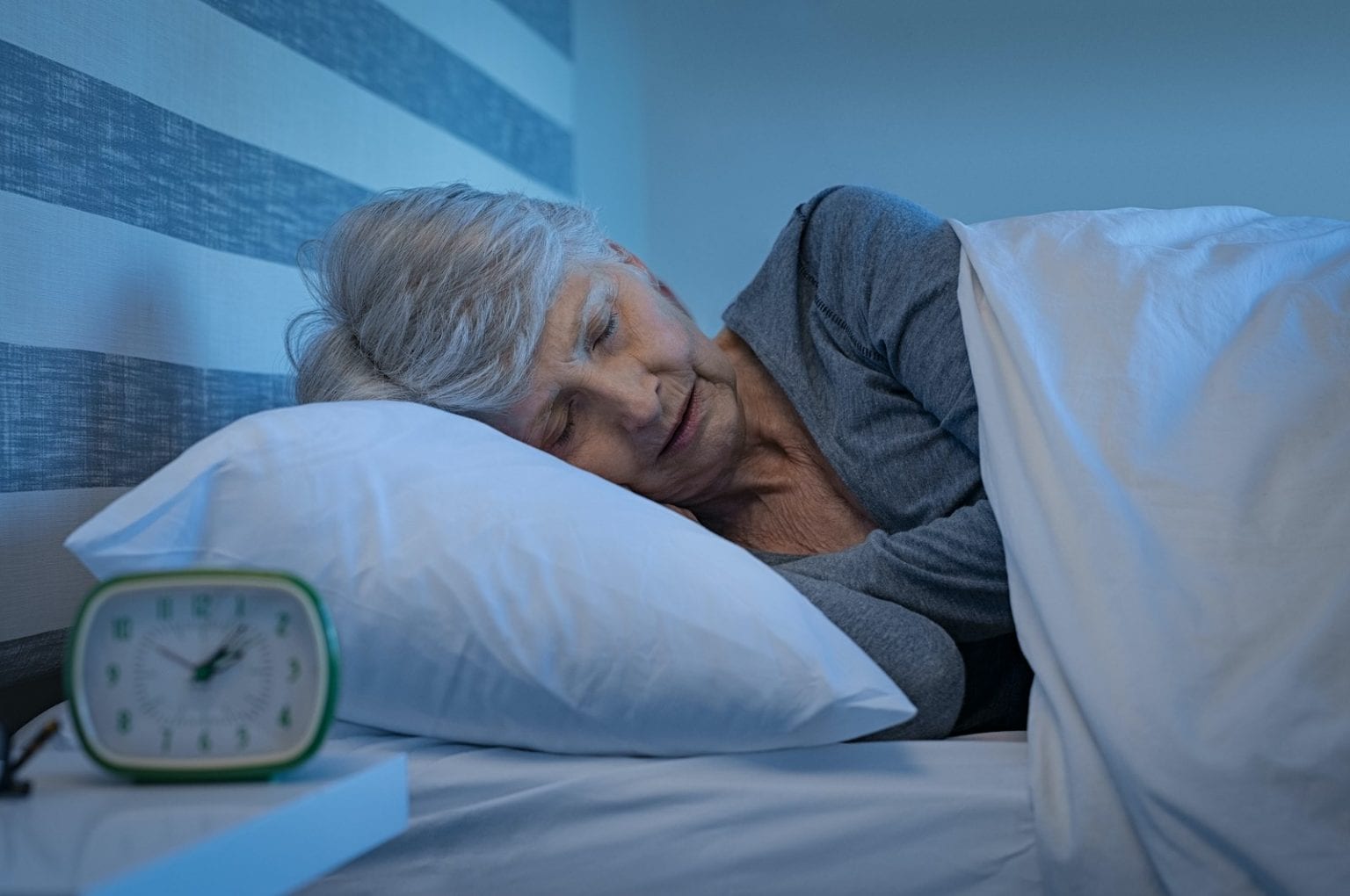Healthy Sleeping Habits for Seniors
15 August 2021
No one is quite sure why humans have a natural need to sleep, though there have been countless studies performed on the subject. Most doctors and scientific research experts agree that sleep is an essential part of restoring our physical and mental health.
In reality, the Rapid Eye Movement (REM) sleep stage is the only stage we need to feel refreshed and energised, though everyone goes through alternating patterns throughout the night.

Understanding Sleep Habits for Seniors
As we age, the body produces lower levels of growth hormone. In turn, the body then produces less melatonin, which makes for more rapid sleep cycles and fewer deep slumber sessions. As a result, older adults wake more frequently throughout the night.
According to research, the majority of elderly individuals receive only 6.5 hours of sleep on average. This amount is less than the usual 8 hours of sleep recommended for adults. The reason behind this decrease in sleep for older adults is that they tend to experience frequent interruptions in their nightly sleep cycle. These interruptions stem from a variety of factors, including depression, anxiety, pain associated with chronic illness, and bladder problems / the need to urinate more frequently throughout the night.
If you have ever pulled an all-nighter, you probably felt incredibly sluggish the next day and may have been unable to be productive in any sense. For older adults who experience regular disruptions in sleep, sleep deprivation can cause confusion along with other mental changes.
Common Elderly Sleep Problems and Ailments
In addition to changing sleeping patterns, as adults age, certain sleep disorders occur more frequently. Some sleeping disorders develop over time and manifest with age.
Some of these include:
Sleep Apnea – is a common medical condition that disrupts the sleep patterns of millions of people each year. While obesity is one common cause of sleep apnea in those under the age of 50, older adults are also more susceptible to developing this disorder. Sleep apnea occurs when a person stops breathing for brief periods multiple times throughout the night. Some warning signs include loud, persistent snoring; long pauses between breaths, and feeling sleepy during waking hours. Your GP will perform a sleep test for a proper diagnosis if you suspect there may be a problem.
Restless Leg Syndrome (RLS) – If you are experiencing throbbing sensations in your legs and/or feel the need to move them while at rest, you could be suffering from RLS.
Sleep is vital for people of all ages. Since seniors experience different sleeping patterns than their younger counterparts, it is important to understand the changes in an adult’s sleep cycle and how to best adjust to these changes. For instance, given that getting up in the middle of the night can make a person groggy in the morning, daily naps are highly recommended for the elderly. Your body needs a certain amount of sleep every day, but sometimes this means making changes to your current habits.
Healthy Sleeping for Seniors: Tips For a Good Night’s Rest
Develop a sleeping routine – Getting to bed at the same time every night can help acclimate your body to a more regular regimen of sleep.
Create optimum sleeping conditions – Make sure your bedroom is dark, quiet, and cool. Creating an environment conducive to sleeping will help ensure you actually do get your required amounts of shuteye. Be sure that shades and curtains are drawn and that television sets and radios are tuned low levels that aren’t disruptive to sleep. Additionally, keeping the bedroom temperature at a cooler setting (if possible), helps make for more ideal sleeping conditions.
Exercise regularly – People who live sedentary lifestyles are more susceptible to sleep problems and feel less energised when awake than those who partake in some form of daily physical activity. One brisk walk a day can help you sleep much better at night.
Watch what you eat – Keep consumption of caffeinated beverages to a minimum, especially a few hours before bedtime. Alcohol and spicy foods are stimulants, so plan your meals accordingly. Avoid consuming these food and beverage items at least 3-4 hours prior to bedtime.
Make your bedroom a place for sleep – It is not a good idea to have television in your room, as watching TV can make it difficult to unwind and drift off to sleep. Opt for some light reading instead.
These helpful tips may help you to get more quality rest each night for a healthier you!
Residential Care Guide
Eligibility and AssessmentNew Aged Care Homes
Residential Care Financials
- Residential Care Fee Categories
- Current Fees and Charges
- Basic Daily Care Fee
- Means Tested Care Fee
- What is a RAD, DAP, MPIR?
- Current and Historical MPIR's
- Refundable Accommodation Deposit (RAD)
- Daily Accommodation Payment (DAP)
- Maximum Permissible Interest Rate (MPIR)
- Additional Service Fee (ASF)
Centrelink Form SA485 Explained
Centrelink Form SA457 Explained
Residential Care Agreement
Age Pension Current Rates